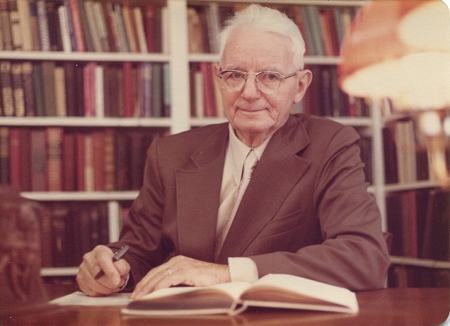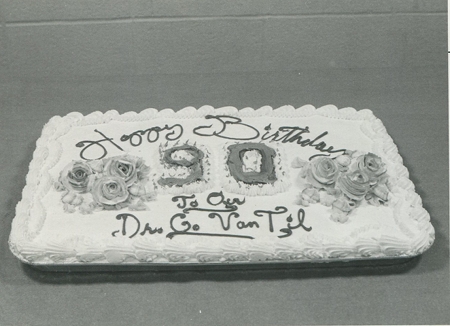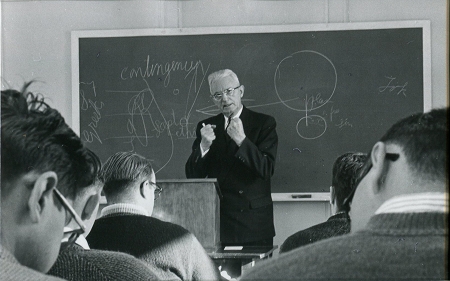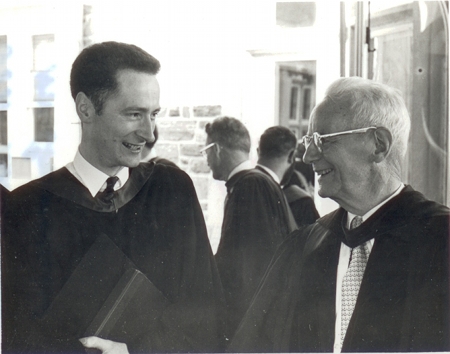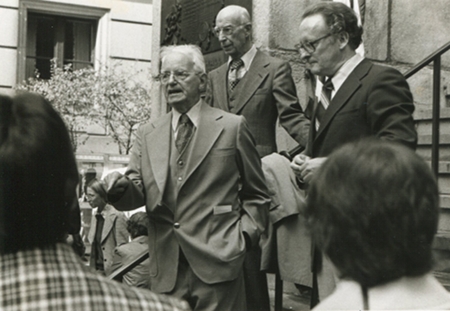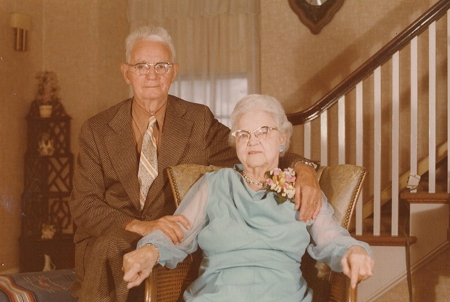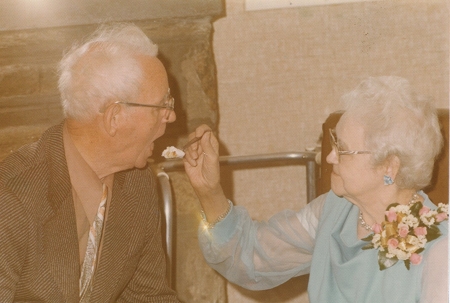Van Til's BirthdayMay 02, 2012Born May 3rd, 1895 Cornelius Van Til was one of the key founders of Westminster Theological Seminary in the early 20th century. He provided the backbone of Apologetic teaching at Westminster, and his legacy lives on today in our curriculum and in the teaching and writing of Drs. K. Scott Oliphint and William Edgar, among many others. Listen to some of Dr. Van Til's lectures in our audio archives or our iTunes U page. On May 3rd of this year, which would have been his 117th birthday, we look back at some photos from Van Til's time here, as well as some key quotes from his major writings.
The Following are excerpts from some of the most important and influential of Van Til's works: "We conclude then that when both parties, the believer and the non-believer, are epistemologically self-conscious and as such engaged in the interpretative enterprise, they cannot be said to have any fact in common. On the other hand, it must be asserted that they have every fact in common. Both deal with the same God and with the same universe created by God. Both are made in the image of God. In short, they have the metaphysical situation in common. Metaphysically, both parties have all things in common, while epistemologically they have nothing in common. Christians and non-Christians have opposing philosophies of fact. They also have opposing philosophies of law. They differ on the nature of diversity; they also differ on the nature of unity."[1] "Christianity offers the triune God, the absolute personality…as the God in whom we believe. This conception of God is the foundation of everything else we hold dear. Unless we can believe in this sort of God, it does us no good to be told that we may believe in some other sort of God, or in anything else. For us everything depends for its meaning upon this sort of God. Accordingly we are not interested to have anyone prove to us the existence of any other sort of God but this God. Any other sort of God is no God at all and to prove some other sort of God exists is, in effect, to prove that no God exists."[2] "If we are to defend Christian theism as a unit it must be shown that its parts are really related to one another… The whole curriculum of an orthodox seminary is built upon the conception of Christian theism as a unit. The Bible is at the center not only of every course, but at the center of the curriculum as a whole. The Bible is thought of as authoritative on everything of which it speaks. Moreover, it speaks of everything. We do not mean that it speaks of football games, of atoms, etc., directly, but we do mean that it speaks of everything either directly or by implication. It tells us not only of the Christ and his work, but it also tells us who God is and where the universe about us has come from. It tells us about theism as well as about Christianity. It gives us a philosophy of history as well as history. Moreover, the information on these subjects is woven into an inextricable whole. It is only if you reject the Bible as the word of God that you can separate the so-called religious and moral instruction of the Bible from what it says, e.g., about the physical universe. This view of Scripture, therefore, involves the idea that there is nothing in this universe on which human beings can have full and true information unless they take the Bible into account. We do not mean, of course, that one must go to the Bible rather than to the laboratory if one wishes to study the anatomy of the snake. But if one goes only to the laboratory and not also to the Bible one will not have a full or even true interpretation of the snake. Apologetics must therefore take a definitely assigned place in the curriculum of an orthodox seminary."[3] [1] Cornelius Van Til. Common Grace and The Gospel. Phillipsburg, NJ: P&R Publishing. 1977 [2] Van Til. The Defense of the Faith, Fourth Edition. Ed. K. Scott Oliphint. Phillipsburg, NJ: P&R Publishing. 2008. p. 34 [3] Van Til, Christian Apologetics, second edition. Ed. William Edgar. Phillipsburg, NJ: P&R Publishing. 2003 p. 19-20
|







